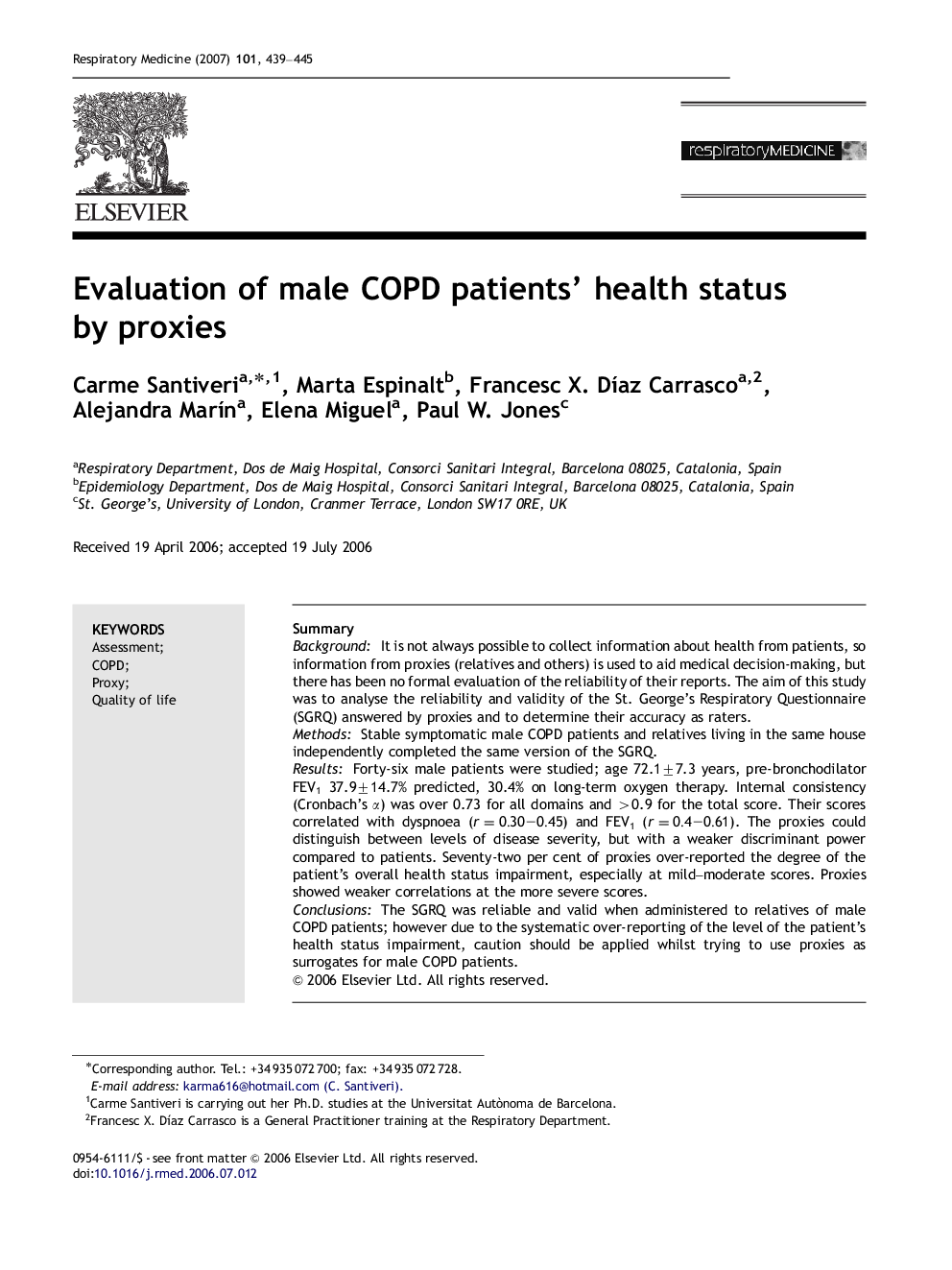| Article ID | Journal | Published Year | Pages | File Type |
|---|---|---|---|---|
| 4211733 | Respiratory Medicine | 2007 | 7 Pages |
SummaryBackgroundIt is not always possible to collect information about health from patients, so information from proxies (relatives and others) is used to aid medical decision-making, but there has been no formal evaluation of the reliability of their reports. The aim of this study was to analyse the reliability and validity of the St. George's Respiratory Questionnaire (SGRQ) answered by proxies and to determine their accuracy as raters.MethodsStable symptomatic male COPD patients and relatives living in the same house independently completed the same version of the SGRQ.ResultsForty-six male patients were studied; age 72.1±7.3 years, pre-bronchodilator FEV1 37.9±14.7% predicted, 30.4% on long-term oxygen therapy. Internal consistency (Cronbach's α ) was over 0.73 for all domains and >0.9 for the total score. Their scores correlated with dyspnoea (r=0.30–0.45r=0.30–0.45) and FEV1 (r=0.4–0.61r=0.4–0.61). The proxies could distinguish between levels of disease severity, but with a weaker discriminant power compared to patients. Seventy-two per cent of proxies over-reported the degree of the patient's overall health status impairment, especially at mild–moderate scores. Proxies showed weaker correlations at the more severe scores.ConclusionsThe SGRQ was reliable and valid when administered to relatives of male COPD patients; however due to the systematic over-reporting of the level of the patient's health status impairment, caution should be applied whilst trying to use proxies as surrogates for male COPD patients.
